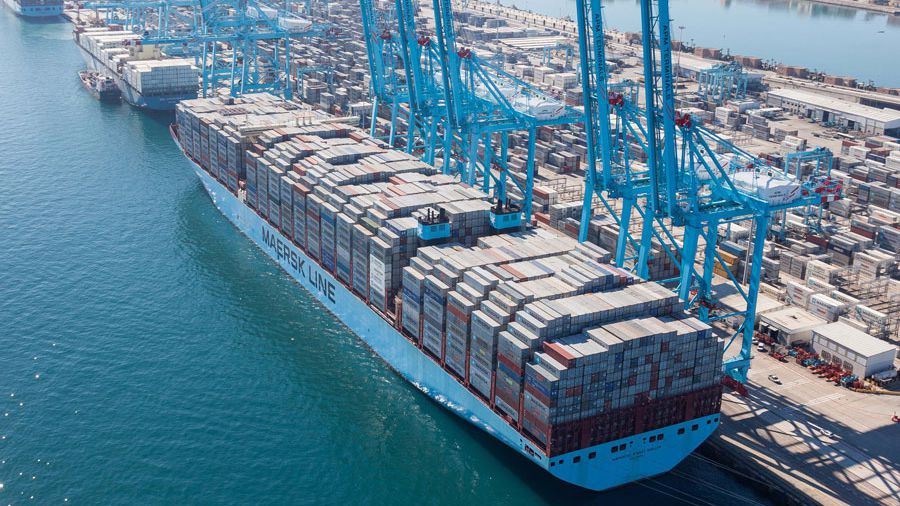After Strikes, Maersk Cuts Volume at Algeciras for Good

After months of slowdowns and a week of strikes at the port of Algeciras, Maersk Lines has decided to reroute a significant portion of its transshipment cargo to Tangier, Morocco, on the other side of the Strait of Gibraltar. The decision will affect about 150,000 movements per year, reports El Economista.
The firm has already begun rerouting its ships and has accelerated the change since dockers' rolling strikes began on Monday. Maersk's business acounts for about three quarters of Algeciras’ total container volume. The Spanish Ministry of Public Works said in a statement Friday that when including Maersk's decision, the accumulated loss of business for Algeciras due to industrial action amounts to 500,000 movements per year, or about 15 percent of the total. Minister of Public Works Íñigo de la Serna warned that Maersk's decision was an early sign of serious, long-term effects on Spain's port sector if the strike should continue. "They have to negotiate and reach an agreement to revoke the strike because the effect can be disastrous," he said.
Maersk's APM Terminals division runs container terminals at both Algeciras and at Tangier, and it is investing $850 million in a new highly automated facility in Morocco, APM Terminals MedPort Tangier. The new terminal is expected to come online sometime next year.
Spain's longshore unions are striking until port employers offer a guarantee that there will be no layoffs or job losses after a new port deregulation law comes into effect. The new decree will allow ports to phase in non-union longshore labor, and dockers are concerned that this will lead to the loss of jobs and a decline in wages.
To date, the strikes have cost Spanish ports, logistics firms and shippers an estimated $40 million; in one visible example, traffic backups at Valencia extended for up to a mile along the V-30 highway Thursday as accumulated delays held up the flow of drayage. Terminal operators at Valencia and across the country have extended their opening hours in an attempt to offset the effects of the strike.
Government and labor representatives report that dockers’ adherence to the strike order has been nearly 100 percent, suggesting that the unions' plans for continued labor action are a viable threat. The strike will resume next Wednesday will a full 48-hour stoppage – a much more damaging halt than the every-other-hour, one-day actions that the unions have held to date. Direct labor-management talks resume Tuesday in a last-minute attempt to head off the strike.
